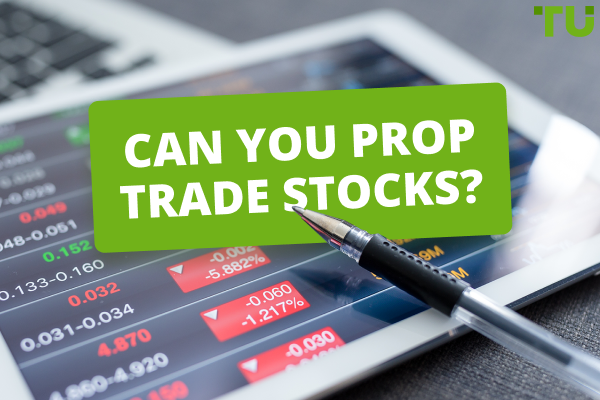Is prop trading legal?
Yes, prop trading is legal in most countries.
While prop trading firms enable traders to gain access to capital and a potential share of profits, it's important to consider the legal and regulatory landscape for these organizations. As this article discusses, proprietary trading itself is legally permitted in many jurisdictions. However, the lack of oversight for some prop shops means traders must diligently assess each opportunity.
This comprehensive analysis explores the prop firm model and outlines key factors for traders to examine. It also presents a balanced discussion of benefits and risks. With careful due diligence of a firm's reputation, trading conditions, and financial position, proprietary arrangements can represent a valid avenue for skilled traders to enhance their practice. For new entrants, it's wise to gain experience with a licensed broker before seeking funding from a prop shop.
Key points from the article:
-
Prop trading itself is generally legal, but some large banks had to separate proprietary desks from client operations due to regulations like the Volcker Rule.
-
Non-bank prop firms can avoid much financial regulation since they use their own money for trading rather than client funds. However, this lack of oversight also means traders take on more risk.
-
Traders should thoroughly research a prop firm's reputation by reading reviews from multiple sources. Legitimate firms will be transparent about evaluation criteria, fees, and profit-sharing arrangements.
What is proprietary trading?
Proprietary trading, also known as prop trading, is a trading activity where individuals or traders use the capital of a financial firm to trade in financial markets. Such firms offer traders access to their capital, trading tools, and services to generate profits for the firm, with traders receiving a share of the profits based on a predefined arrangement.
Prop traders usually focus on one market or asset, such as stocks, options, ETFs, commodities, FX currency pairs, or futures contracts. Their goal is to develop profitable trading strategies using the firm's capital and tools to generate profits through day and swing trades.
While some prop trading firms pay their traders a minimal monthly salary to help them focus solely on trading, most do not offer a base salary. Instead, traders receive a predetermined share of the profits earned each month. This share usually ranges between 25%-50%, although some firms offer a higher profit distribution of up to 75%. Proprietary trading provides a lucrative opportunity for traders to use the capital of a firm to trade in financial markets and receive a share of the profits they generate.
Are prop firms legal?
Proprietary trading firms have become increasingly popular among traders who want to access capital and earn profits. However, the legality of these firms has been a topic of debate, particularly with the introduction of regulations like the Volcker Rule and the Dodd-Frank Wall Street Reform and Consumer Protection Act.
The Volcker Rule prohibits banks and bank-holding companies from engaging in proprietary trading, owning hedge funds, or participating in private equity funds to prevent conflicts of interest and maintain customer-focused operations. Consequently, many large banks have either shut down their proprietary trading functions or separated them from their core business operations.
Nonetheless, some specialized prop firms offer proprietary trading as a stand-alone service. These firms are typically not regulated, but they generally use their own capital for trading instead of client funds. Some prop firms may even provide access to a demo account with virtual capital rather than real money for traders to manage. Thus, most prop firms can bypass financial regulations.
Although the lack of regulations makes it easier for traders to receive funding from prop firms, it also means that traders may not have adequate protections and may be responsible for deciding whether to trust a particular prop firm. In the future, new laws may require Forex prop firms to be regulated in a similar way to Forex brokers. Nonetheless, experts suggest that prop firms are presently legal and provide traders with a way to access capital and make profits.
6 Best Forex Funded Accounts ComparedBest prop trading accounts 2024
Based on careful evaluation of top candidates, our experts have shortlisted the following as the best prop trading accounts for 2023.
How to find the right prop firm for you
Here are some factors to consider when choosing a prop firm, as suggested by our experts:
Evaluating the reputation of a proprietary trading firm: One of the first things to consider when choosing a prop firm is its reputation. You can start by looking for the firm on rating sites like TrustPilot and reading reviews from other traders. However, keep in mind that reviews can be manipulated or fake, so exercise caution when evaluating them. Look for firms with good reviews and a solid online presence, including a website and social media presence.
The importance of a professional and legitimate website: A legitimate prop firm should have a well-designed website that is free of errors and inconsistencies. If the website looks poorly designed or unprofessional, it could be a red flag that the firm is a scam.
Ensuring fair and reasonable evaluation criteria: Consider the requirements and limitations imposed by the prop firm for the evaluation period as well as for traders who have passed the evaluation. If the requirements are too strict or too easy to meet, it could be a sign of a scam. Legitimate prop firms fund only the best of the best, so if almost anyone can pass the evaluation, it could be a sign that the firm is not selective enough.
Customer support: Good customer service is essential for traders who want to succeed in proprietary trading. Look for a prop firm with responsive and helpful customer support that can resolve any issues you may encounter quickly.
Profit split: Prop firms typically offer a profit split percentage ranging from 50%-50% to 75%-25%. Look for a firm with a profit split rate that aligns with your trading goals and expectations.
Trading fees: Consider the trading fees and costs charged by the prop firm, as these can have a significant impact on your profitability. Look for a firm with transparent and reasonable fees and consider asking about rebate trading programs that can offset some of the trading costs.
How to Get Funded for Trading Forex?How Prop Firms Operate
Once a trader has identified a prop firm that suits their needs and risk appetite, the next step is to undertake their application and evaluation process. Most proprietary trading firms follow a standardized procedure to onboard new traders and assess their skills, but there may be some variations between companies.
In general, a trader would first need to register on the firm's website. This involves providing basic KYC details as well as documentation verifying identity and in some cases, proof of income. Payment of an initial registration or application fee is also required at this point, with costs ranging from $50-$500 depending on the firm.
After registering, the trader will be granted access to a demo account funded with virtual capital. This demo account is used by the prop firm to evaluate the individual's trading performance over a set time period, usually between one to three months. The evaluation criteria will assess metrics like the maximum drawdown incurred, total profit achieved, risk-to-reward ratios and trading activity levels. Firms aim to only select traders who can demonstrate real ability and discipline even without using live market funds.
For traders that pass the testing phase, they are transitioned to a real money funded account with capital provided by the prop firm. At this stage, clear terms are laid out regarding trading limits, profit sharing structures, account requirements and consequences for underperformance. The trader can then begin genuine trading of Forex pairs, indices, commodities or other permitted instruments using leverage.
Ongoing performance is continuously reviewed by the prop firm to ensure traders are adhering to the strategy that led to their selection. Those unable to generate profits or whose risk-management deteriorates may have their funding revoked at the discretion of the company. However, top performing traders may see their allocated balance increase over time based on success.
How to stay safe when trading with a prop firm
To stay safe when trading with a prop firm, it's crucial to understand the terms and conditions, be aware of the risks, use a trusted broker, and ask questions when necessary. Additionally, reading and understanding the agreement's terms and conditions, being aware of the risks, choosing a reputable and trustworthy broker, and asking for clarification or more information if needed can help you trade with confidence and maximize your profitability.
Expert Opinion
Groucho Marx once told the president of the Friars Club that he wouldn’t belong to any club that would have him.
Aspiring proprietary traders might be wise to take a similar view.
Real prop trading firms are groups of professionals who know how to manage risk and identify arbitrage opportunities on the fly. They’ve typically been separated from investment banks by the Volcker Rule, so they’re putting their own money at risk.
Prop traders cut their teeth at top firms. They’ve lost their institutional information network, the colleagues who can advise them, and their firm’s capital. They often think they’re better than others in the market. And in some cases, they are.
So, prop trading firms are just groups of guys making bets, often specialized ones that they learned at the investment banks where they used to work.
Working with them, it’s best to remember the old poker adage that, if you don’t know who the mark is, you are probably him.
So remember, if you walk into a prop trading house thinking that you’re the smartest guy in the room, you may as well have a target painted on your back.
Team that worked on the article
Chinmay Soni is a financial analyst with more than 5 years of experience in working with stocks, Forex, derivatives, and other assets. As a founder of a boutique research firm and an active researcher, he covers various industries and fields, providing insights backed by statistical data. He is also an educator in the field of finance and technology.
As an author for Traders Union, he contributes his deep analytical insights on various topics, taking into account various aspects.
Dr. BJ Johnson is a PhD in English Language and an editor with over 15 years of experience. He earned his degree in English Language in the U.S and the UK. In 2020, Dr. Johnson joined the Traders Union team. Since then, he has created over 100 exclusive articles and edited over 300 articles of other authors.
Mirjan Hipolito is a journalist and news editor at Traders Union. She is an expert crypto writer with five years of experience in the financial markets. Her specialties are daily market news, price predictions, and Initial Coin Offerings (ICO).

















